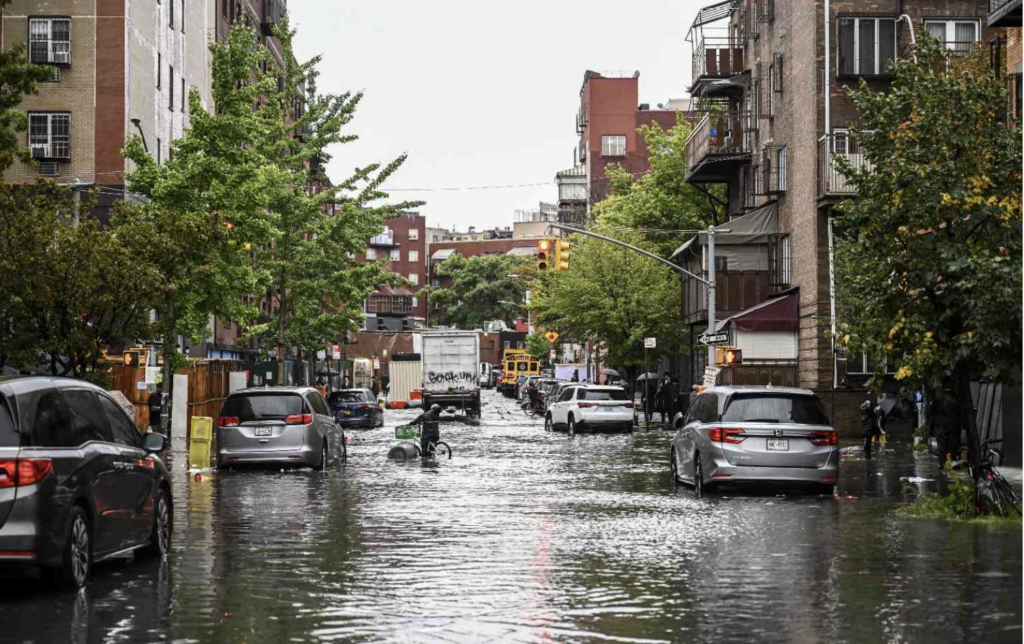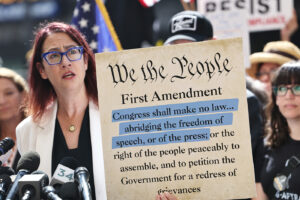October 3, 2023
New York City’s Climate Change Whiplash
By Peter Lucas
NYC had the wettest day on record since 1948 just months after smoke from the Canadian wildfires blanketed the sky. The lesson is clear: The US must take meaningful climate action now.

(Fatih Aktas / Getty)
Last Friday, eight inches of rain drenched the New York/New Jersey/Connecticut tristate area, leading New York Governor Kathy Hochul to declare a state of emergency in her state. The torrential downpour inundated streets, basements, and subway stations, and even forced a school evacuation, marking the wettest day on record for New York City since at least 1948. Occurring just months after smoke from the Canadian wildfires blanketed skylines across the US Northeast, this disaster represented another harrowing reminder of how the climate crisis is creating a “new normal” for all Americans.
As the world remains on track to careen past a 1.5 degree warming limit within the coming decade, the lesson is clear: The United States must take meaningful climate action, both to enable as much adaptation to this new normal as is possible and to mitigate the far deadlier consequences that continued reliance on fossil fuels will lock into place.
Republicans’ recent standoff brought the federal government to the brink of a standstill, which would have triggered devastating effects for critical climate change-related initiatives. Bloomberg Green reported that shutting down the government, even very temporarily, would have impacted long-term federal disaster assistance—delaying nearly 2,000 long-term disaster recovery projects, including over 200 such projects in New York, according to the White House.


